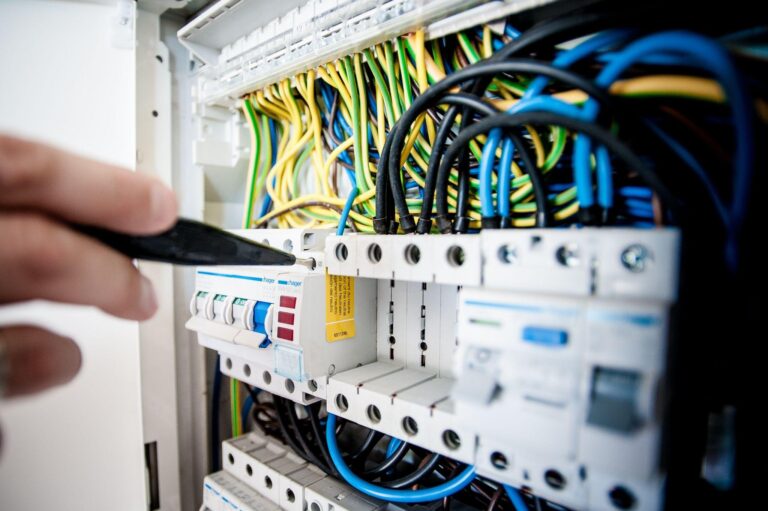Data Analytics Future Scope: Trends, Job Opportunities and More

The data analytics future scope is bright. The global big data and business analytics market size was valued at $225.3 billion in 2023, and is projected to reach $665.7 billion by 2033, growing at a CAGR of 11.6% from 2024 to 2033. The market is big, and it is booming. Why is this happening? What do I need to do to be able to take advantage of this? This article will answer those questions.
The Importance of Data Analytics in Today’s World
Today’s world is driven by science, by technology, by logic. However, these things rely entirely on data. Without data, science becomes conjecture, technology becomes unreliable, and logic becomes guesswork. Good decisions need to be backed up by data in order to be taken and implemented more successfully. Data can add impact to an argument, and lend validity to a claim. But then, what is the importance of data analytics? Data is neutral, but people make completely different conclusions based on it. As these facts become more and more evident, people give greater importance to the field of data analytics and utilise it in their business models to make effective and smart decisions.
Current Trends In Data Analytics
As the field of data science develops rapidly to keep up with demand, new trends are emerging. Some of the latest trends in data analytics include: democratization of data, a number of innovation in AI and machine learning such as augmented analytics and natural language processing, and more efficient data management with the help of data fabrics and edge computing. Some of these are explained below.
Data democratization
This refers to making data accessible and usable for everyone in an organization, regardless of their technical expertise. Everyone needs to use data to some extent, so it’s important that everyone has access to basic features and insights on data. User-friendly self-service tools that can be found online are one way by which data democratization can take place.
Augmented Analytics
Augmented analytics refers to an application of AI towards data democratization. It is meant to enable AI to provide assistance with preparing data, as well as generating and explaining insight on it. It achieves this through the use of machine learning to reduce tedious and generic work so that insights can be made faster. With tools like these, data analytics future scope includes an easier path not only for the analysts themselves, but also their clients.
Natural Language Processing
Natural Language Processing (NLP) is another use of AI in data analytics that will make it much smoother and easier to understand. It focuses on helping machines understand, interpret and even generate human language. It uses syntactic analysis to understand the specific usage of grammar and punctuation, as well as semantic analysis to understand the meaning of certain words and phrases. NLP is thus able to turn qualitative and subjective data into objective statistics, widening data analytics future scope.
Edge Computing
Edge computing has been around since the 1990s, but has been overshadowed by cloud computing as an efficient data manager and processor. While cloud computing stores data in a separate location in the “cloud”, away from the source of the data; edge computing stores it in the “edges” of that source. This is extremely helpful in reducing the required latency and bandwidth for processing, but connectivity is a major issue. However, with recent innovations such as with 5G technology, it’s emerging as a strong, and in some cases, a better option compared to cloud computing. Data analytics future scope will thus include lucrative options in data management and developing edge computing to be more effective.
Data Fabric
A data fabric integrates and organises different types of data together, making them more structured and easy to manage. It connects the data together using APIs and connectors and then uses data virtualization to connect them into one access point, making them easier to find. Data fabric has broadened data management and data analyst future scope to focus more on the insights involving the data rather than simply managing it, and research and development on this innovation is possible.
Evolving Roles of Data Analyst
Data analytics future scope is constantly changing, and the only certainty one can maintain in this field is that they need to be ready to adapt. Additionally, the roles and responsibilities associated with data analysts are constantly changing. However, there do appear to be some trends arising that are indicative of a larger change, and are more permanent.
AI and Machine Learning In Data Analytics
Over the years, machine learning and data science have become an increasingly significant part of data analytics, both as an application and as a tool. An understanding and basic training in AI and machine learning and how they affect data analytics is already considered a huge advantage, and may soon become indispensable in the data analytics future scope. At the very least, AI driven insights will continue to influence the interpretations made by human data scientists.
Data Cleansing
Data cleansing, or data cleaning, refers to the removal of faulty, inconsistent or incorrect data; thereby enhancing the quality of information. Data scrubbing allows businesses to make more informed decisions based on more reliable statistics. With the advent of machine learning and AI, data analytics future scope will begin to rely more on advanced, automated technologies. At the same time, changing data governance laws will require those working in this field to not become complacent and change their techniques accordingly.
Data Literacy
Data literacy is the ability to understand and engage with data meaningfully. This ties into our previous point about data democratization, wherein find data accessible and useable. Data analytics future scope will include not only having a lot of data literacy, but also being able to spread data literacy to your non-data scientist coworkers and clients. Data literacy has 3 Cs: Critical thinking, Creativity and Curiosity. All of these need to be kept in mind for those looking to become more data literate.
Freelancing
Recent time have also seen an increase in individuals, especially younger ones looking to join the market, deciding to become freelancers. Data analytics future scope is strong for freelancing, as more and more companies opt to hire minimal staff and instead out source their work. Freelancing can be cut-throat and difficult to find ground in, but established freelancer can earn high and steady incomes. Freelancing platforms can help alleviate these initial issues and help you find projects with ease. One of these platforms, Pangaeax, was made specifically for freelance data analysts and data scientists, to connect them with businesses and help them establish themselves.
Conclusion
Data analytics future scope is constantly evolving, that is the very nature of the field. But in these constant changes, we can identify certain patterns that can tell us what trends and innovations will have a larger impact, and need to be invested in. Data analytics future scope is ripe with opportunity, and with the right training and tools, you can unlock them for yourself. If you’re looking to engage with data analytics in a more meaningful way and find more opportunities, sign up to Pangaeax and become a freelancer today!
Get your data results fast and accelerate your business performance with the insights you need today.



